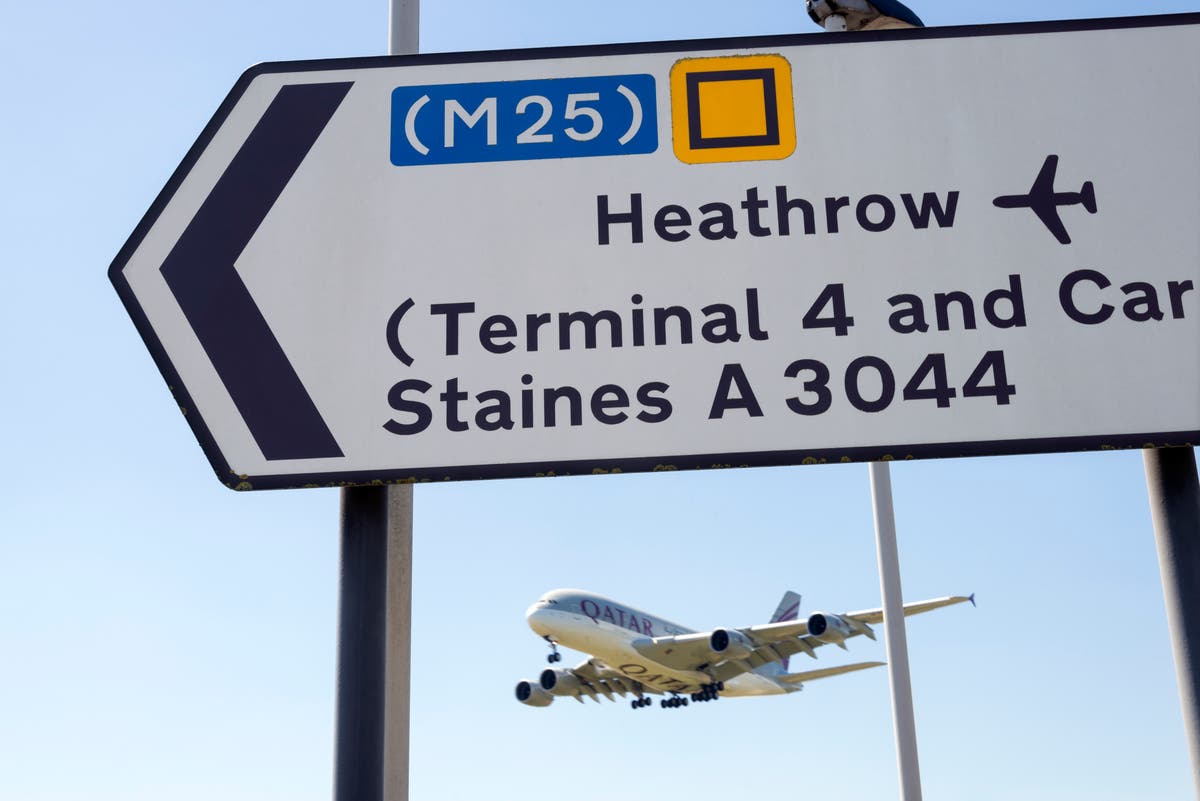Train strikes: what’s happening this month and how will rail passengers be affected?
After the rail unions announced a series of 24-hour strikes and vowed to shut down the railway, this is the state of play

National rail strikes in disputes over pay, working conditions and jobs have been taking place since June. Another series will hit millions of passengers in early October.
The date of the biggest strike, Saturday 1 October, is the day before the Conservative Party conference opens in Birmingham and the eve of the London Marathon. The second date, Wednesday 5 October, is the day the Tory conference ends.
A second Saturday strike, on 8 October, is aimed at wrecking the plans of leisure passengers.
But who’s involved and what will the effects be?
Who is striking – and when?
The RMT union has called walk-outs on 1 and 8 October, involving more than 40,000 members working for Network Rail and 14 train operating companies. The union says it will “effectively shut down the railway network”.
The first date, Saturday 1 October, coincides with a strike involving train drivers working for 12 rail firms and belonging to the Aslef union. The stoppages will bring the vast majority of services to a halt.
In addition, Aslef members at 13 train operators will stop work on Wednesday 5 October.
The Transport Salaried Staffs’ Association (TSSA), which represents white-collar workers, says members in Network Rail and 11 train operating companies will take “strike action and action short of strike on Saturday 1 October,” with those at some individual firms stopping work on 5, 6 and 8 October.
The unions had planned similar action in mid-September, but postponed the walk-outs after the death of the Queen.
Which train operators will be affected?
The disputes are tangled. But let’s start with the 14 affected by the RMT stoppages on 1 and 8 October.
Six are mainly longer-distance intercity companies, though with plenty of shorter connections (eg Coventry to Birmingham, Derby to Matlock and Durham to Newcastle):
The remaining eight are largely commuter and shorter-distance operators, though they include operators with some longer journeys such as London to Norwich and to Birmingham:
In addition, says the RMT, members working for London Overground and Hull Trains will walk out on 1 October in separate disputes.
The intercity operators affected by the Aslef strike on 1 and 5 October are very similar, though with the addition of drivers working for Hull Trains and, on the second date only, at East Midlands Railway.
Train drivers are also walking out at six shorter-distance operators:
TSSA members working for Network Rail and seven train operators – Avanti West Coast, East Midlands Railway, LNER, Southeastern. South Western Railway, TransPennine Express and West Midlands Trains – will strike on 1 October. Further stoppages have been called on 5 October for CrossCountry, 6 October for GWR and 8 October for Avanti West Coast and c2c.
The general secretary, Manuel Cortes, said: “It is time for train operators to meet us round the table and reach fair solutions.”
While TSSA members play important roles on the railway, mass cancellations are unlikely as a result of their action.
Will trains stop completely on the main strike days?
No, though the action on 1 October will see the most significant disruption across Great Britain since the 1980s, with both the main rail unions calling out the vast majority of their members.
One in nine trains is expected to run. The Rail Delivery Group, representing train operators, says: “Only around 11 per cent of services will operate, and in some parts of the country there will be no trains at all.
“With trains starting later and finishing much earlier than usual, passengers are asked to only travel by rail if absolutely necessary. Those who must travel should expect disruption, plan ahead and check when their last train will depart.”
The biggest impact will be achieved by 5,000 Network Rail signallers stopping work across Great Britain. Non-union members will enable a service to run between 7.30am and 6.30pm on strike days, across about half the network.
Rail staff working for a number of firms including Grand Central, Lumo, Merseyrail, ScotRail and Transport for Wales are not striking, though all those operators will see serious disruption.
In addition, non-union staff will operate some trains for other operators, allowing a limited service for passengers on LNER and Great Western Railway, for example.
Train operators warn of significant disruption on Sunday 2 October, with overnight staff not working and rolling stock out of position for the resumption of services.
South Western Railway is urging passengers not to try to travel on either 1 or 2 October.
What will happen on Wednesday 5 October?
Train drivers working for 13 operators plan to strike, but Network Rail signallers will work normally.
The impact will be variable – Southeastern says none of its trains will run on lines linking London with Kent. Some other strike-affected firms are likely to operate a limited timetable.
Saturday 8 October?
Expect around 20 per cent of trains to run, mainly on key intercity lines plus suburban lines around London, Birmingham, Manchester, Leeds and southern Scotland.
Again, there will be disruption on Sunday 9 October.
Any more bad news?
RMT members working for ScotRail plan to strike on Monday 10 October.
Will Eurostar be affected by any of the national strikes?
Yes. International trains from London to Paris, Brussels and Amsterdam run on High Speed 1, the link from St Pancras International to the Channel Tunnel, which will be affected by the walk-out of Network Rail signallers belonging to the RMT union.
On 1 and 8 October, trains will not run early in the morning or through the evening.
Why are RMT members striking?
“Continued attacks on pay and working conditions at a time when big business profits are at an all-time high,” says the union.
The RMT general secretary Mick Lynch says: “We want a settlement to these disputes where our members and their families can get a square deal. And we will not rest until we get a satisfactory outcome.”
What is the train drivers’ strike about?
Pay. Mick Whelan, general secretary of Aslef, says: “The train companies have been determined to force our hand. They are telling train drivers to take a real terms pay cut.
“With inflation now running at 12.3 per cent– and set, it is said, to go higher – these companies are saying that drivers should be prepared to work just as hard, for just as long, but for considerably less.
“It is outrageous that they expect us to put up with a real terms pay cut for a third year in a row. And that’s why we are going on strike. To persuade the companies to be sensible, to do the right thing, and come and negotiate properly with us.
What do the employers say?
Andrew Haines, chief executive of Network Rail, said: “We want to give our employees a decent pay rise. It isn’t fair to ask taxpayers or passengers to fund this so we must fund it ourselves, which is achievable if the unions work with us to modernise and run the railway more efficiently.
“The decision by unions to strike again serves only to prolong disruption for passengers, undermine the railway’s recovery from the pandemic and ensure railway staff forgo even more of their pay unnecessarily.
Daniel Mann, director of industry operations at the RDG, said: “These strikes are unnecessary and damaging. They disrupt passengers’ plans, undermine struggling businesses, hit major events and harm the industry’s recovery.
“It is particularly disheartening that next weekend’s strike will hit the plans of thousands of runners who have trained for months to take part in the iconic London Marathon. That will also punish the many charities, large and small, who depend on sponsorship money raised by such events to support the most vulnerable in our community.”
What if I have a ticket for one of the strike days?
The RDG says: “Passengers with advance, off-peak or anytime tickets affected by the strikes on 1 October can use their ticket on the day before the booked date, or up to and including 4 October..
“Passengers can also change their tickets to travel on an alternate date or get a refund if their train is cancelled or rescheduled.
“For customers booked to travel on 5 October, the same flexibility applies on the day before the strike and they can use their tickets up to and including 7 October.”
Could there be more strikes?
Probably. Besides the issues of pay, redundancies and working conditions, the RMT union is concerned about what it says are plans to close ticket offices at stations.
In addition, the RMT has signalled further strikes by members working for Transport for London following a funding settlement with the government.
But Aslef and the RMT share with the new transport secretary, Anne-Marie Trevelyan, a strong political bond. They all campaigned enthusiastically and successfully together for Brexit.
Leaders of both unions have met Ms Trevelyan, with Mr Lynch of the RMT saying: “We welcome this more positive approach from the government to engage with us as a first step to finding a suitable settlement.”

 JimMin
JimMin 































